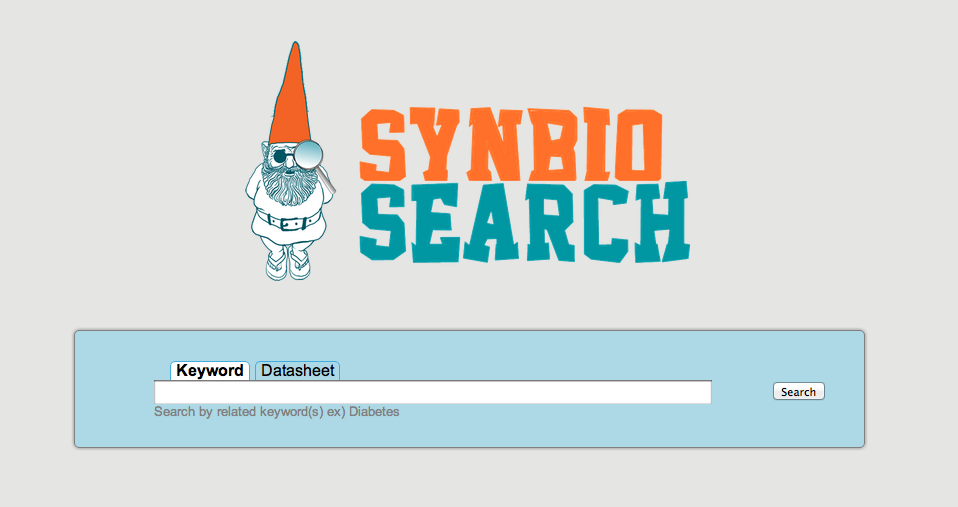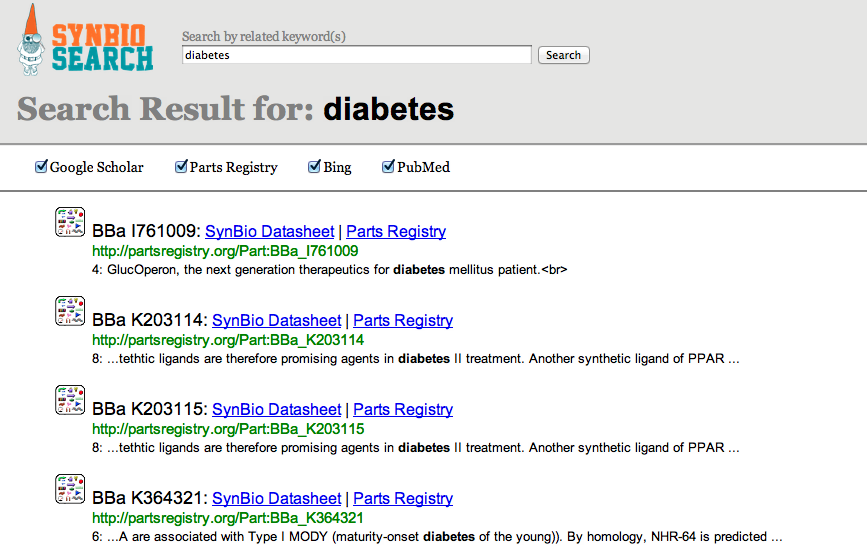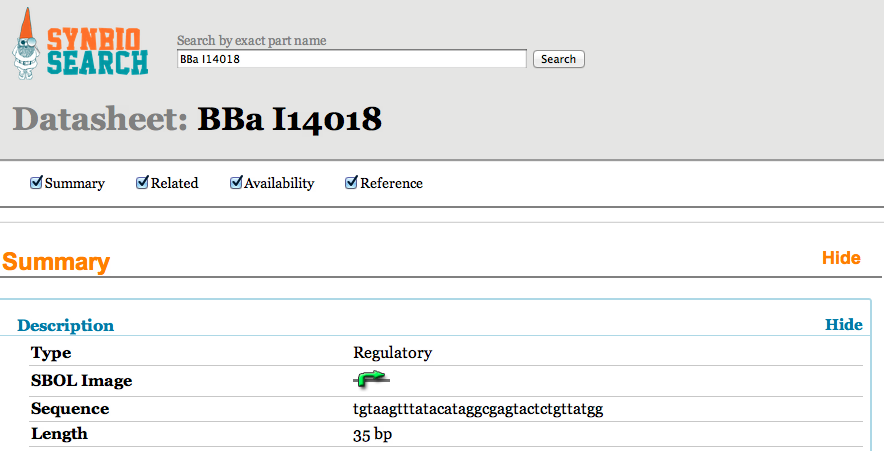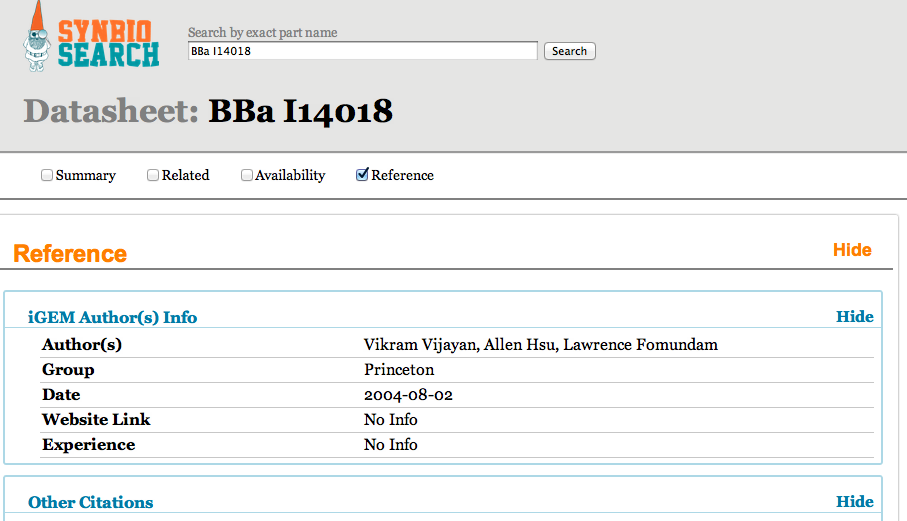Team:Wellesley HCI/SynBio Search
From 2012.igem.org
| Line 119: | Line 119: | ||
<h1>Tool Overview</h1> | <h1>Tool Overview</h1> | ||
<p> | <p> | ||
| - | <a href=" | + | <a href="synbiosearch.org">SynBio Search</a> is an online tool that generates data sheets for over 2700 biological parts by aggregating data from various publicly available resources. It integrates and links information from various data sources, including the <a href="http://partsregistry.org/Main_Page">Registry of Standard Biological Parts</a>, the iGEM Archive, Google Scholar, and <a href="http://www.ncbi.nlm.nih.gov/pubmed/">PubMed</a>. SynBio Search builds on the collected sources by providing a structured view that relates heterogeneous information, links back to original data sources, and allows users to customize and organize the display. It enables researchers to discover the most comprehensive view of freely available data about biological parts from a single online search. SynBio Search allows users to search by keyword (e.g. tuberculosis) or by part name. |
</p> | </p> | ||
<h3>Implementation</h3> | <h3>Implementation</h3> | ||
<p> | <p> | ||
| - | As a web application, <a href=" | + | As a web application, <a href="synbiosearch.org">SynBio Search</a> was implemented using multiple platforms. Information is gathered by crawling through multiple databases using CGI scripts written in Ruby. The search results are then outputted into JSON files; once the files are parsed using JavaScript and jQuery, the information is displayed in a clear and logical format on a web page for the user to access. |
</p> | </p> | ||
| Line 188: | Line 188: | ||
<ul> | <ul> | ||
<li>Include more information in the data sheet for each part, such as chassis, regulation, strength, and twins.</li> | <li>Include more information in the data sheet for each part, such as chassis, regulation, strength, and twins.</li> | ||
| - | <li> | + | <li>Improve efficiency.</li> |
| - | <li> | + | <li>Iterate on the design based on user feedback.</li> |
| - | + | <li>Incorporate a sophisticated feedback and experience feature.</li> | |
| - | <li> | + | |
</ul> | </ul> | ||
Revision as of 19:10, 1 October 2012

SynBio Search
Tool Overview
SynBio Search is an online tool that generates data sheets for over 2700 biological parts by aggregating data from various publicly available resources. It integrates and links information from various data sources, including the Registry of Standard Biological Parts, the iGEM Archive, Google Scholar, and PubMed. SynBio Search builds on the collected sources by providing a structured view that relates heterogeneous information, links back to original data sources, and allows users to customize and organize the display. It enables researchers to discover the most comprehensive view of freely available data about biological parts from a single online search. SynBio Search allows users to search by keyword (e.g. tuberculosis) or by part name.
Implementation
As a web application, SynBio Search was implemented using multiple platforms. Information is gathered by crawling through multiple databases using CGI scripts written in Ruby. The search results are then outputted into JSON files; once the files are parsed using JavaScript and jQuery, the information is displayed in a clear and logical format on a web page for the user to access.
Purpose
While there are already several search engines for synthetic biology, none are exactly what users neither want nor need. For example, many iGEM participants and biology scientists and engineers use the Registry of Standard Biological Parts to document their experience on new or previously made biological parts. However, the Registry is poorly organized, information is hard to locate, and certain data are missing. Thus, the purpose of our project is to create a resource that is not only qualitatively and quantitatively comprehensive, but also more accessible to users. It collects results from multiple data sources, allowing users to view more complete information in an organized and efficient manner.
 |
 |
 |
 |
Results
SynBio Search study results...

An example of a collection showing parts, vectors, and features
A DNA sequence opened in sequence viewer with features highlighted.
Demo Video
Future Work
- Include more information in the data sheet for each part, such as chassis, regulation, strength, and twins.
- Improve efficiency.
- Iterate on the design based on user feedback.
- Incorporate a sophisticated feedback and experience feature.
 "
"